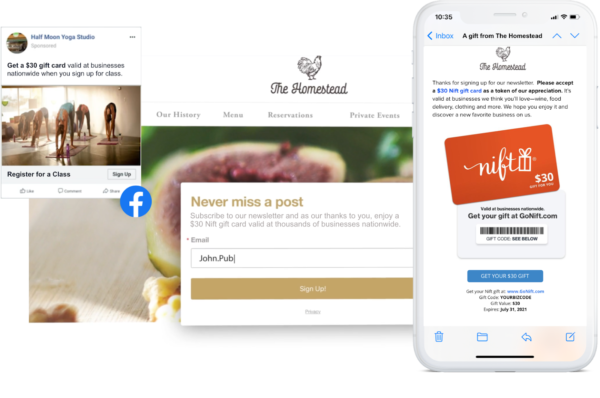What Should I Consider When Buying What I Should Consider When Purchasing A Family Medicine Email Database?
Be aware of these aspects before buying an email database to use for Family Medicine. These will aid you in obtaining reliable, top-quality, and legal data that can be used effectively to promote your business. What you should consider is:1. Quality and Accuracy of the Data
Source of Data: Ensure the data provider is sourced from reputable and verified sources, for example, medical directories licensing boards, professional associations and opt-in databases. The email addresses of family medicine practitioners must be relevant, up-to-date and suited to your target audience.
Verification Process: Find out about the provider’s verification process. The list of email addresses should be maintained and regularly cleaned to get rid of invalid or inactive email addresses. Validated emails enhance delivery and decrease bounce rates.
Segmentation Options The list should allow segmentation based on criteria such as the geographical location (country or state, city) and the number of years in practice, practice size or the specific areas of interest (e.g. pediatric health, geriatrics, preventive medicine). Segmentation allows for more specific and personalized outreach, which can increase engagement rates.
2. Compliance with Legal Regulations
Data Privacy Laws Ensure that your list is compliant with General Data Protection Regulations (GDPR) in Europe and the California Consumer Privacy Act, (CCPA) which is in the U.S.A. Email addresses should only be collected only with the consent of the user and legally to avoid the risk of regulatory penalties.
CAN-SPAM Act Compliance: If you’re conducting emails for marketing purposes within the U.S., make sure that your list is compliant with the CAN-SPAM Act. Also, you should include clear opt-out methods and avoid deceitful or misleading subject line information.
The opt-in consent must be confirmed. used to gather email addresses. This means that family medicine physicians agreed to receive promotional messages from third-parties, ensuring compliance and reducing spam complaints.
3. Provider Reputation
Reputable Provider: Choose an organization that has a proven history of providing high-quality and reliable data. Review, testimonials and case studies of customers to determine the provider’s reliability and credibility.
Transparency. Providers must be open and honest about the methods that they employ to collect data and also the frequency at which they update it. It’s a red flag if the company is not able to describe how they got their data.
Customer Support: Search for firms that provide high-quality customer support. There may be a need for assistance with technical problems and list segmentation, or to ensure the list conforms to the regulations.
4. Return on investment (ROI) and cost
Pricing models. There are different pricing options available, such as subscription or flat fee. You must choose a structure that’s in line with your budget.
Refund and Replacement Policy Trustworthy suppliers offer the option of a replacement or refund in the event of an invalid or out-of-date email addresses. Be sure to read the terms of this policy prior to purchasing to protect your investment.
Don’t focus on price alone. A lower-priced mailing list might seem attractive, but it may cause low deliverability or a an excessive bounce rate. It is better to purchase a top-quality list with greater targeting and higher engagement rates.
5. Ownership and use of data
Single Use or Multiple Use? Clarify the use of the list. Lists that support multiple campaigns are more valuable particularly if you are planning ongoing outreach.
Exclusive vs. Shared Lists: Determine whether a list is just available to your business, or when multiple buyers are purchasing it. Exclusive lists are less likely of resulting in an oversaturated audience. They also tend to produce more engagement.
6. Data Integration and Format
CRM Compatibility: Ensure that the email list is in a format that is compatible with your customer relationship management (CRM) system or email marketing tools (e.g., CSV or Excel). This ensures smooth integration and easy use.
User-friendliness It should be simple to filter, segment or organize according to the criteria of your campaign. It can streamline your message and your targeting campaigns.
7. Ethical Questions
Relevance of outreach: Family doctors are busy professionals. Make sure your outreach is appropriate to their needs. Avoid generic or inappropriate messaging as it could damage your reputation and result in low engagement.
Avoiding Spam Practices Send out emails in a planned manner and refrain from overloading your email list. Inundating recipients with numerous emails or insignificant offers could result in cancellation of subscriptions, spam reports or even a damaged reputation of the sender.
The final sentence of the article is:
If you want to make sure your campaign is successful, consider the following factors when purchasing an Family Medicine Email List: Data quality, legal compliance and provider reputation. Find authentic, segmented data that is in compliance with privacy laws and aligned with your target group of customers. Making sure you have a reliable list and sending relevant marketing messages will improve engagement rates and boost your return on investment. View the best family medicine email list for website guide.

What Factors Should I Take Into Consideration Prior To Purchasing A Nurses Email List?
When purchasing a nurses email list, you have to consider several important factors to ensure that the list is accurate, compliant with regulations, and useful for your marketing or outreach campaign. Here are the key points to remember: 1. Quality of data and accuracy
Source of Data – Make sure that the list you are using comes from a trustworthy and legitimate source like an association for nurses or registries for healthcare or licensing authorities. Avoid lists compiled through untested methods such as scraping data because they might contain outdated or incorrect information.
Verification and update frequency: Check that the provider regularly cleans and updates the data. It is essential to keep a reputable database of email addresses in order to remove duplicate, invalid, or unactive email addresses. A high-quality information ensures better deliverability.
Segmentation options: A good high-quality nurses’ email list can be segmented by factors like the nursing specialty, location (e.g. state or city or region), and employment settings (hospitals clinics private practices). Segmentation helps you target your messages more effectively and increases the engagement.
2. Legal Regulations
Data Privacy Laws – Ensure you comply with all privacy laws and regulations, such as the California Consumer Privacy Act, that is currently in force within the U.S.A. and as well as any regional or local privacy legislation. Email addresses should be legally collected, with proper consent in order to avoid penalties and protect your brand’s image.
CANSPAM Act Compliance – If you conduct email marketing within the U.S.A. make sure that your list complies the CANSPAM Act. This means clear opt-out options, non-deceptive subject lines, and correct information about the sender. Infractions can result in substantial fines, and damage your brand’s image.
Consent through Opt-In: The contact list should include only those who have signed up to receive email communications. This means that nurses on the list have expressly agreed to receive communications, thus reducing the chance of complaints about spam and legal issues.
3. Provider Reputation
Reputable Vendors: Choose one that has the track record of providing high-quality, accurate email lists. Review reviews, testimonials and case studies to determine the reliability of the company as well as the accuracy and quality of the information.
Transparency: Providers should be transparent in their gathering and verification of information. This could indicate that the data is out of date or not reliable if they are not able to provide the source of their data and how they updated it.
Customer Support: Select the service provider that offers an extensive quality of customer service. You’ll get better assistance in case you encounter any issues such as data integration issues or concerns about the regulatory compliance.
4. Cost and Return On Investment (ROI).
Pricing Structure: Make sure to understand the pricing model. This includes the possibility that the company will charge per number of contacts, size of the list or a set fee. Make sure the price is in line with your budget, and your goals in marketing.
Find out the policy of a vendor regarding invalid email addresses. Most reliable vendors will offer a replacement or refund for a certain percentage invalid or non-deliverable email addresses, so you can be sure that you’re receiving the value you paid for.
Do not focus solely on price. Although it might be tempting for you to select the cheapest list, you should consider quality first before price. A list that is more expensive and includes accurate data but is also well-segmented, will provide a better return on investment.
5. Ownership of data and use
You may utilize the list for one time or reuse it. If you’re planning on running emails that run throughout the years and require lists which you can reuse be the best investment.
Shared Lists: Consider if the list you are purchasing is private or is shared with other buyers. Shared lists: Decide which list is exclusive to you, or is shared with other customers. Exclusive lists are more efficient as they reduce oversaturation and increase engagement rates.
6. Data Integration and Format
CRM Compatibility: Ensure the list is provided in a format that works with your customer relationship management (CRM) software or marketing email platform like CSV or Excel. This will ensure seamless and effective integration.
Easy segmentation The list needs to be organized in a way that makes it easy to sort the list by the criteria. It is easier to tailor messages to certain groups of nurses, thereby increasing the efficacy of your marketing campaign.
7. Ethical Concerns
Relevance: As nurses are busy healthcare professionals It is crucial to provide them with valuable and pertinent information. Make sure that your message is pertinent to their field of work. This could include educational opportunities, healthcare products or even industry-related advancements. Beware of promotional and irrelevant content. This can harm your brand’s reputation.
Avoid spam practices: Do not overwhelm your audience by sending numerous emails. Sending unnecessary or infrequent emails can result in higher unsubscribe rate as well as spam complaints, and may cause harm to the reputation of the sender.
Conclusion
When you purchase a nurses email list, consider the data’s quality, legal compliance, and the credibility of the company. Make sure the list is separated, updated regularly, and adheres to applicable data privacy laws. By investing in a quality targeted, well-targeted lists and sending relevant, tailored messages, you can improve the engagement of your customers and increase the return on investment. Check out the expert nurses email list for more examples.


